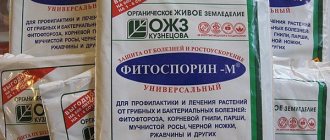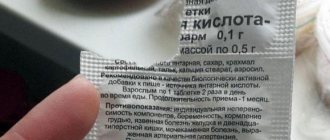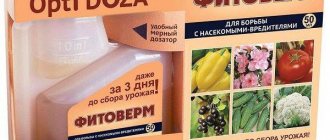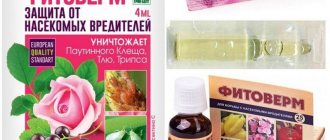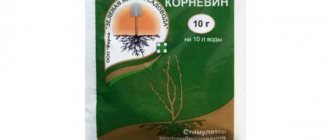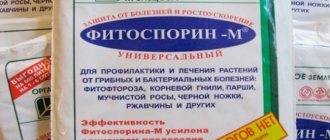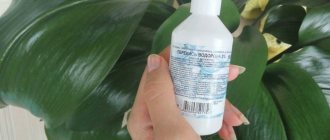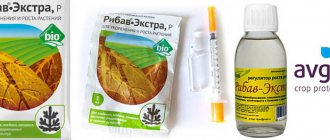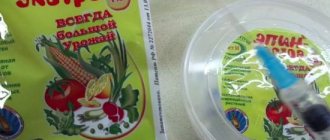Author of the article: Anna Vladimirovna | Updated: 02/22/2022
Multi-baker Redmond RMB-611
2172 ₽ More details
Multi-baker Redmond RMB-611
2172 ₽ More details
Cast iron plates
Over the past years, flower shops have been delighting us with the diversity of their assortment, and rarely can anyone resist buying a delightfully flowering plant. Unfortunately, after some time our new pet loses its former beauty and begins to waste away. It is almost impossible to return it to growth and flowering with simple watering. In such cases, the use of immunomodulators is recommended, but flower growers often do not understand how to use them. From this article you will learn why phytohormones are needed and why Epin is important for indoor plants.
Description of the drug Epin-extra
The basis is the first steroidal synthetic phytohormone 24-epibrassinolide. The substance is present in every cell of the plant organism, but in very small concentrations. It is completely identical to the natural hormone. Works as a progressive adaptogen, strong anti-stress, immunostimulant.
A natural plant hormone was first synthesized by a group of American biologists in 1979. Currently, more than 40 brassinosteroids have been obtained. The class of compounds has been studied for more than 20 years, and today its promise in home floriculture has been proven.
Suitable for processing:
- geraniums (Star, Tulip, Variegated, Royal);
- violets (Wasp, Chalice, Pansy, Bell, Star);
- ficus (Microcarpa, Benjamina, Montana, Carica, Parcella, Ginseng, Amstel, Oakleaf);
- citrus fruits, coffee trees (lemon, tangerine, kumquat, Arabian coffee, Nana);
- indoor roses (Prima Ballerina, Clementine, Hummingbird, Orange Jewel, Green Ice, Easter Morning);
- cyclamen (European, Persian);
- palm trees (Pandanus, Areca, Washingtonia, Cycas, Howea, Brochea, Gioforba, Date);
- azaleas (Concinna, Celestina, Erie, Niobe, Paul Sheme);
- orchids (Cattleya, Oncidium, Phalaenopsis, Miltonia, Vanda, Dracula).
Composition and release form
The concentrate is a clear liquid with a slight alcoholic odor, which foams slightly when diluted. The active ingredient is a solution of epibrassinolide in alcohol 0.025 g/l.
Peculiarity! The product contains shampoo for better treatment of the leaf surface.
Release form:
- ampoules 0.25 ml;
- 50 ml bottles;
- 1 liter bottles
Help in stressful situations
Epin, as a highly effective stimulant and bioregulator, is indispensable in stressful situations that arise everywhere:
- drought;
- lack of light or heat;
- depleted soil;
- frost;
- incorrect or untimely feeding;
- environmental pressures;
- fungal or viral infections;
- attack by insect pests.
Anti-stress adaptogen contained in the drug helps mobilize the plants’ own resources, increasing their natural immunity to combat adverse factors.
At the same time, seeds treated in advance with Epin produce offspring that already have such resistance in advance. This can be achieved thanks to a unique bioregulatory formula that promotes balance and normalization of growth.
In nature, the active ingredient of the drug Epin is found in small doses in the cells of absolutely all plants.
Useful properties for indoor plants
Plant microorganisms contain a minimal amount of phytohormones; additional feeding is a valuable source of such compounds. The phytoadaptogen is characterized by extensive protective and stimulating effects. The immunomodulator effectively increases resistance to stress and disease, and regulates growth. Improves bud formation, ensures abundant flowering.
Important! Epin rejuvenates adult plants, awakening the active growth of green mass, budding, and release of flowers. Young specimens do not get sick and are less likely to suffer from negative influences.
The product is characterized by high antioxidant properties. Regulates the flow of ions into plant cells, preventing the accumulation of radioactive elements and heavy metals. The flower is “tuned” to the independent production of other phytohormones. It begins to produce its own growth stimulants - cytokines, auxins, gibberellins, ethylene, abscisic acids. All of them are necessary for a specific stage of development.
Benefit:
- rapid germination of seeds of roses, violets, date palms, ficus, citrus trees;
- increased growth, formation of normal plant size;
- acceleration of the period of budding, transition to flowering;
- complete survival of seedlings. The percentage of germination increases, the rooting zone, number, and average length of roots increase. The quality of the planted material increases;
- increases immunity against infectious fungal and bacterial diseases;
- due to the content of the shampoo, it is used as a “stick” for pests;
- strengthens protective mechanisms - the plant organism activates the synthesis of the amino acid proline. This triggers production processes under extreme conditions (salinity, drought, low, high temperatures). At the same time, the green mass and the amount of chlorophyll increase, and the shedding of buds and shedding of flowers is prevented.
Advantages and disadvantages of Epin
I’ll start right away with the disadvantages of this immunostimulant. The first and, in my opinion, the most important drawback is that epin quickly decomposes in the light, losing its unique strength, so it is advisable to carry out processing while avoiding sunlight, and this is not always convenient. The second drawback is that it is inconvenient to dilute in small doses, without a syringe, it’s so easy, it’s unrealistic. That's all the shortcomings.
A little more needs to be said about the advantages.
- This is the best anti-stress product for plants that I know.
- Reasonable price, especially when compared with the result obtained.
- Helps plants tolerate both frost and waterlogging or drought.
- Reduces the content of heavy metals, nitrates, radionuclides in plants and fruits.
- Promotes rooting of any seedlings, especially good for seedlings.
- Increases productivity.
Why and in what cases is it used?
Use the product if you want to start flowering and improve the decorative qualities of flowers. Protect indoor plantings in stressful situations, pest infestations, and unfavorable growing conditions.
Application cases:
- transplantation of young and adult plants, seedlings, children;
- moving, adaptation to a new place;
- cooling, overheating;
- before and after the growing season;
- weak, excessive lighting;
- underfilling, overfilling;
- onset and development of diseases;
- harmful environment - dust, lack of ventilation, cigarette smoke.
Use of growth stimulator Epin
To use Epin correctly, carefully read the instructions for use. Do not change the dose and dilute the drug correctly.
To treat indoor plants, it is recommended to place the flower in a dark, light-proof bag for 12 hours. Undoubtedly, to improve the efficiency of processing, it is necessary to exclude bright lighting, but there is no need to keep the plant without access to air for a long time.
- The solution is prepared before use; the finished solution can be stored for no more than 48 hours, in a closed container in a dark place.
- The treatment is carried out in the evening, for this you can use the bathroom.
- Place the plant to be treated in a bath and from a distance of 40 - 50 cm, with a fine spray, treat the entire surface of the plant (leaves and stems).
- We leave it in the dark until the morning, this time is enough to penetrate into the deep layers of the plant and begin to act on the active substance.
- If you need to spray plantings of vegetables or garden crops, it is better to do the same in the evening in dry, windless weather. Carefully inspect the plants, if you notice signs of disease or pest damage, be sure to carry out additional treatment with pesticides or add them to the epin solution.
- Plants can be sprayed several times, with an interval of no more than 12 to 14 days, this is due to the fact that the decay period of the active substance is 14 days. There is no need to water more often; the substance does not accumulate in the plant in reserve. And there is no need to increase the intervals between spraying plants: after two weeks it will remain without protection. Damaged plants are treated until a lasting positive result is obtained.
Instructions for use
Preparative form – solution, 1 ml contains 40 drops of Epin-extra. A drop corresponds to 0.025 ml of active substance.
How to dilute the solution?
Use boiled, filtered water at room temperature. Check the pH level. In an alkaline environment, fertilizer loses some of its beneficial properties. To increase acidity, add 2 grains of citric acid or 1-2 drops of vinegar.
Instructions:
- Prepare the composition on the day of treatment.
- Measure the dosage with an insulin syringe. It is convenient to pierce the ampoule with a needle, covering the hole with a piece of tape. Epin is removed from the bottle without a needle.
- Store opened packaging for no more than 48 hours.
- Mix the solution thoroughly and use as directed. It is suitable for use only on the day of dilution.
Table No. 1. Regulations for preparing the solution
| Prevention | Monthly one-time spraying | 10 drops/250 ml |
| Antistress | Weekly spraying until the condition is completely restored | 7 drops/100 ml |
| Transfer | 7 days before and after | 7 drops/200 ml |
| Growth stimulator | First spraying - during the growing season Second - 30 days before dormancy | 10 drops/l |
| Stimulation of flowering | 1 – during budding 2 – after flowering | 10 drops/l |
Soaking seeds and bulbs
If you want to increase the germination of seeds, soak the planting material in a concentrated solution. Use 4 drops per 100 ml. Duration - 18-20 hours. Bulbs of indoor flowers are soaked differently. Prepare the composition by taking 3 drops per 100 ml, or 1 ampoule per 2 liters. Duration – 24 hours.
For seedlings
Treat young shoots 2-3 times a month. Use spraying technology, taking 7 drops per 200 ml. If you plan to plant in a new pot or pick, then a day before or immediately after, moisten the leaf plates with a more concentrated product (7 drops/100 ml).
For feeding
If the flower is experiencing stressful conditions after moving, dilute 1 ampoule into 5 liters. Spray fertilizer on the green mass once every 7 days. Fertilizing against wilting, damage, and disease is carried out every week until the plant organism is completely cured. Working solution – 7 drops per 100 ml.
For watering and spraying flowers
Work in the evening or morning hours. Place the flower in the bath to prevent damage to surrounding surfaces.
What to do:
- Wipe the sheet plates from dust on both sides.
- Pour the solution into a spray bottle. Set to fine feed.
- Spray, evenly wetting the inside and outside of the leaves. Maintain a distance of 50 cm.
- Then evenly moisten all parts of the flower (shoots, trunk).
- The plant will absorb the fertilizer in 2-4 days. Repeated treatment is possible after a week.
- Fertilizer is not absorbed by the root system, so watering is not carried out.
Important! Spraying on seedlings is carried out when there are already 2-3 true leaves.
Processing rules
Fertilizer has an active effect on seedlings and plants affected by stress and unfavorable factors.
Epin is useful for treating crops that have broken branches or an injured trunk. It is recommended to treat plants after an attack of frost, viral or fungal infections, as well as insect pests. Before spraying a weakened or diseased plant, it is necessary to eliminate the root cause of stress. If the cause of deterioration in the appearance of the crop is bacterial, viral or fungal infections, then it is first necessary to carry out therapeutic treatment, and then use Epin’s solution. If agricultural crops are injured by insect pests, then first (before treatment with Epin) it is necessary to eliminate the parasites from the weakened plant.
Epin is a rehabilitative and restorative agent, but it is not able to save plants from all kinds of problems. Therefore, simultaneously with spraying with the active composition, the affected crops need to be provided with proper care and comfortable growing conditions. Along with spraying, it is useful to loosen the soil, apply nutritious fertilizers, clear the soil of weeds and plant debris, and trim broken branches or shoots.
The most ideal time for spraying is early morning or evening
It is important that the plants are not exposed to sunlight during the treatment period. This is explained by the fact that under the influence of the sun's rays, the active substance of Epin - epibrassinolide - is destroyed and evaporates.
Spraying crops during the day or in sunlight will become ineffective.
After spraying on the surface of agricultural crops, the drug is stored for 2-3 days. But this condition will be met if the treatment was carried out in calm and dry weather. If it rains after spraying, it is recommended to repeat the treatment of the plants.
During treatment, special attention is paid to spraying the vegetative structures of the plant, that is, the leaves (including the underside), as well as the trunk.
If the crop has been exposed to negative factors, then course treatment is allowed. A sick and weakened plant is treated once a day every 7-10 days. The duration of therapy is until the crop recovers completely.
If treatment with Epin is carried out as a preventive measure, then 3 full-fledged sprayings of plants per season are sufficient.
Can it be used with other drugs?
The product works in conjunction with fungicides, insecticides, vitamin and mineral supplements, and growth regulators. The exception is alkaline solutions. Possible options:
- + Cytovit/Inta vir/Decis (2 drops/100 ml) – for pre-treatment of seeds, relieving stress during transplantation;
- + Ferovit/Fitoverm (5 ml/5 l) – with a lack of light, the onset of diseases;
- +Domotsvet/Zircon (3 drops/200 ml) – to accelerate budding and abundant flowering.
Peculiarity! The drug does not work with fertilizers containing humic acids, Bordeaux mixture (Ekorost, Living Force, Humimax).
Possibilities of the drug when spraying
- With a long absence of watering, it enhances the ability of the root system to extract water from the soil;
- When overmoistened, it increases the volume of evaporation from the leaf plate;
- When there is insufficient light, it accelerates the formation of chlorophyll;
- In case of metabolic disorders, it activates the protective properties of the plant cell;
- At high temperatures, it increases the formation of special proteins to relieve “shock” in the plant;
- Promotes long and abundant flowering;
- Increases the immune resistance of flowers to diseases;
- Reduces the impact of stressful situations on the plant.
Possible harm and precautions
The solution does not pose a serious danger to humans, domestic animals, fish, and does not pollute the environment. It belongs to class 3B (low hazardous), which is due to the content of ethyl industrial alcohol.
Precautionary measures:
- use protective clothing, gloves, mask, goggles;
- When spraying, remove animals and children from the premises. Keep the drug out of their reach;
- prepare fertilizer in a separate container not intended for food purposes;
- when processing, refuse to eat, drink, or smoke;
- in case of contact with unprotected areas of skin, wash off with soapy water;
- if the composition gets into your eyes, rinse with Miramistin;
- wash your face, hands, rinse your mouth after spraying.
Safety measures and features of the drug
Epin is an environmentally friendly and safe chemical-based product. It can be mixed with any other phytohormones or inhibitors, with various fungicides and direct-acting insecticides. The only limitation is not to mix the drug with alkaline fertilizers, for example, Bordeaux mixture, since this environment destroys the active substance and neutralizes any of its properties. When Epin is added to insecticides, treatment is carried out 2 days after using the main medicine.
For safety reasons, when carrying out procedures with this drug, personal protective equipment (gloves, gauze bandages, etc.) is used to prevent chemicals from coming into contact with the skin, respiratory system or eyes. Epin is based on a relatively harmless alcohol solution, so it is not recommended to smoke, eat or light matches during the treatment process.
At the end of the work, hands and face are thoroughly washed with soap and treated with moisturizer. Store the product in a cool, dark place (refrigerator or cellar) away from food, water and fire. If the solution gets on the skin of your hands or face, you must immediately treat the affected area with baking soda and rinse thoroughly under running cold water.
Remember that Epin-Extra is not a potent substance; it cannot be used to fight pests or diseases. This remedy will not help with wilting or falling leaves due to systematically improper care, lack of watering and necessary fertilizers, drafts, constant temperature changes, etc.
It only stimulates and supports the natural physiological processes in the plant’s body and helps it cope with one-time stressful situations, promoting its regeneration. Epin can be used in recommended proportions throughout the season at different stages of growth and development of indoor plants; it has no contraindications if the instructions are followed and the plants are properly prepared before treatment.
Storage rules, price and analogues
The product should be stored at a temperature range of -5+25 degrees, isolated from medications and food. The place must be protected from access by animals and children. The price of a 50 ml bottle is 288 rubles, 1 ml ampoules are 13 rubles.
The analogue of the active substance is ComCat (Germany). This is an extract from wild plants containing natural phytohormones. Epin is replaced with other growth stimulants, for example, Agat-25 K, Ribav-Extra, Narcissus, Prorostok, Atlet, Corvitol.
Synthetic hormones successfully help indoor flowers. Use Epin-extra to care for your home greenhouse - the plants will respond with lush green mass and abundant, long-lasting flowering.
5/5 — (1 vote)
What is "Epin" for plants?
Phytohormones have a very beneficial effect on the growth and development of flowers and other garden and indoor crops.
This is manifested in the acquisition of such beneficial properties:
- Strengthening the plant's defenses. It becomes stress-resistant and perfectly adapts to transplantation into open ground, drafts, and drought.
- Good resistance to diseases and pests appears. These products help reduce the use of plant medicines.
- Increased resistance to temperature and humidity fluctuations.
- More luxuriant flowering and fruiting are observed. Plants treated with Epin-extra can be distinguished even by their appearance. After all, crops become strong, strong stems and leaves.
- It becomes possible to obtain products and flowers on depleted soils.
At the moment, scientists have developed several types of such stimulant substances.
They are:
- from organic sources - natural;
- from chemicals - specially created.
The action of such plant hormones is similar to dietary supplements in pharmacology. "Epin" and its improved analogue "Epin-extra" are substances that have a positive effect on the life of the plant, therefore they are widely used in agricultural technology.
